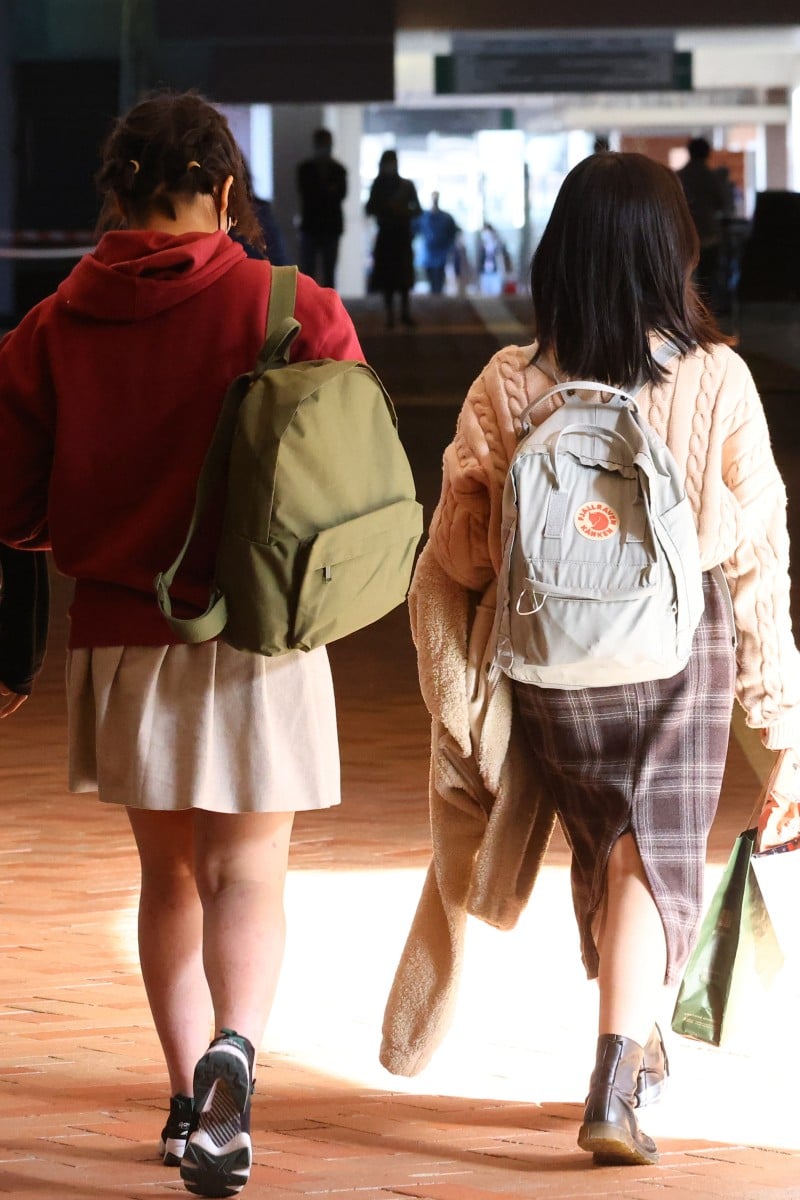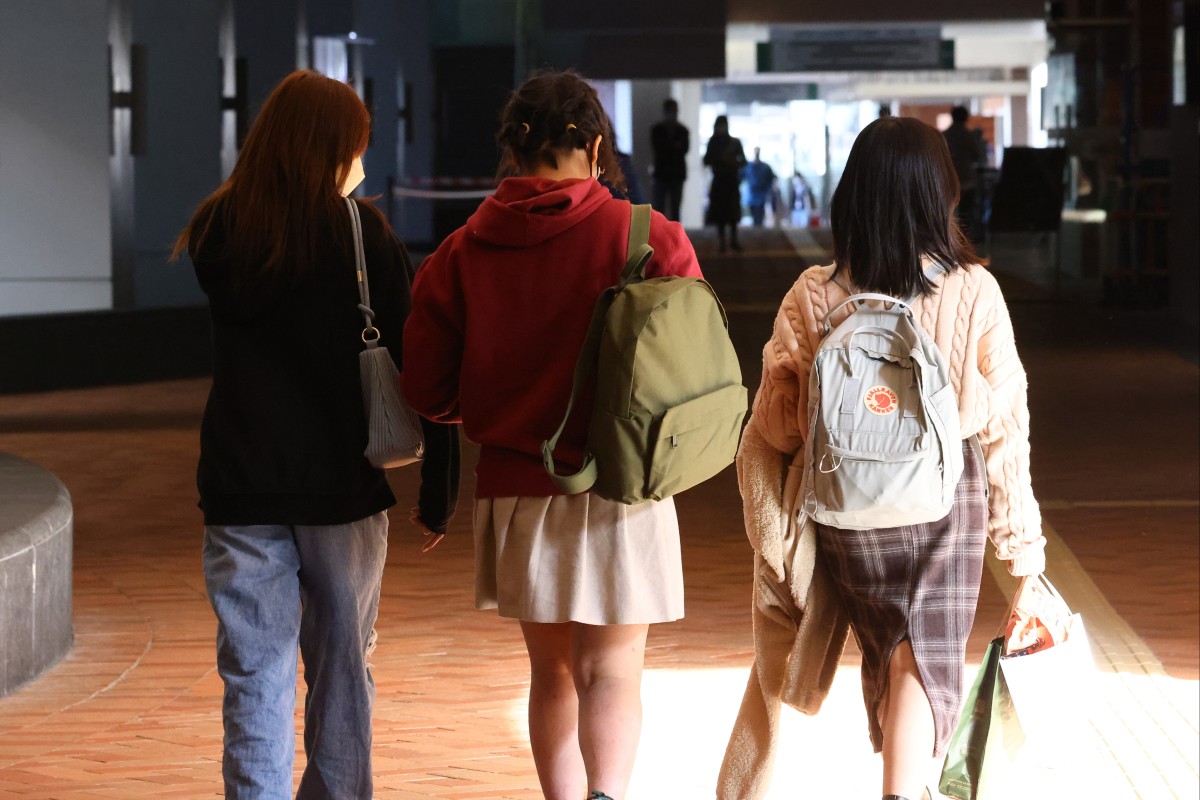
‘Crossed the line’: Hong Kong university students say orientation camps ignored boundaries, were ‘discriminatory’
- Sexual harassment, hazing and discrimination against people with disabilities are some of the accusations levelled against camp organisers and senior students
- Education Bureau says a number of universities plan to strengthen regulations for student-led events and promote moral education
 Orientation camps organised by Hong Kong universities have been hit by allegations of misconduct. Photo: Dickson Lee
Orientation camps organised by Hong Kong universities have been hit by allegations of misconduct. Photo: Dickson LeeBefore you read: Student-led activities like orientation camps are intended to help incoming first-year students make friends and get familiar with campus life. But recent complaints regarding misconduct by organisers have sparked widespread concern.
Think about it: Explain why local universities are examining whether to tighten regulations over student-led events.
After completing her university entrance exams, Ash* eagerly signed up for a three-day orientation camp, hoping to unwind and socialise.
While it was originally meant to prepare Form Six secondary school students for university life, the student-led camp in Mui Wo was similar to university orientation camps, commonly known as “Ocamp”.
It included pupils from around 10 secondary schools as well as a few university students.
The 18-year-old recalled that, during bedtime, a male organiser of her group, locally dubbed the “group father”, insisted that male students enter their room to play games on the second night.
The most unsettling moment for Ash came when the organiser implied that the girls should let them in because the male students had already seen them soaked during the water game. “We have already seen everything during the water game, so why feel shy?” she recalled him saying.
Your Voice: Zero tolerance for sexual assault at Hong Kong university orientations (short letters)
“We were already upset from the beginning, as he was demeaning and impolite. He definitely crossed the line,” said Ash, who is now studying at the Chinese University of Hong Kong (CUHK).
She also noted the student organiser sneaked two bottles of vodka into the camp, even though alcohol was banned.
“This experience has made me never want to participate in any large-scale orientation camps again,” she said.
Ash noted that her unpleasant experience in the pupil-led activities was just the tip of the iceberg, as recent complaints about misbehaviour by students have caused concern about the culture in university induction events.
Between late August and early September, two men from the University of Hong Kong (HKU) and The Education University of Hong Kong (EdU) were arrested in separate incidents related to allegations of sexual assault during orientation camps.
Last month, EdU said they had set up a task force to review the operation of orientation camps, introducing mandatory training on “safety, diversity and equal opportunity, sexual harassment and moral behaviour” for both student organisers and participants before the activities.
On Tuesday, the Education Bureau added in a Legislative Council paper that it had collected information from the city’s universities on their existing policies involving the student-led orientation activities and their plans to monitor these events.
A number of universities said they would strengthen their regulations for the student-led events and promote moral education, including a mandate for university authorities to approve activity plans, according to the Education Bureau.
A senior student from HKU, who served as a “group mother” three times and was part of the organising committee once, said it was normal for some of the games to involve mean questions, as that was considered to be the “fun part”.
Preferring to stay anonymous, she said while games at orientation camps might include sexual innuendos or gender stereotypes, she personally did not find them offensive.
However, in addition to sexual harassment, some first-years have also raised concerns about hazing and discrimination in these induction camps.
A Year One student at CUHK, surnamed Leung, said she felt deeply troubled by a game called “Stephen Hawking” during her orientation camp, which was organised on CUHK campus for social science students.
The game involved mocking the symptoms associated with the renowned physicist’s fatal motor neuron disease, Amyotrophic Lateral Sclerosis (ALS), which reminded her of an elderly family member who had a similar illness and symptoms.
“While others laughed about it, I just could not. Seeing the pain of my entire family being treated as a joke was upsetting,” she said, adding that the game was “discriminatory and ignorant”.
“Perhaps it is part of youth culture to exploit controversial and sensitive topics for attention or entertainment,” she said, explaining that she did not report it because she felt powerless as a first-year.
But she also feels that compared to other universities, CUHK has stricter rules regarding other misbehaviour like alcohol consumption and sexual harassment.
A Year Two student at CUHK, surnamed Lee said he was disappointed by the hazing culture at his former all-male dormitory, Ying Lin Tang.
Your Voice: Sexual harassment is never acceptable
“At night they [the student organisers] would bang the door and swear at you to make you join their activities,” he said, adding that one of the unreasonable demands included crawling on a mat with lotion all over the male body, without wearing a top.
He shared that a queer student in his group felt very uncomfortable when a senior student touched him while checking his pockets before the activity began.
The student, along with others, wrote a lengthy letter to file a complaint with the university last September. He said the student hostels committee only started looking into the misconduct in orientation activities after a student was hospitalised after being forced to consume excessive alcohol.
“I was very unhappy throughout the entire month of September [2022]. It felt exhausting for me to go to school or even stay at home,” he said, adding that he quit the dormitory after the first week.
A CUHK spokesman said there is “zero-tolerance” for “any offensive and inappropriate orientation activities” that would adversely affect participants’ well-being.
Doris Chong, the executive director of the Association Concerning Sexual Violence Against Women, advised that if young students felt uncomfortable with these games, they should establish clear boundaries to protect themselves from abuse and harassment.
The organisation has been approached in the past by students who were harassed during student-led orientation activities.
She said many victims often dismissed their experiences as mere “overthinking”, failing to recognise the severity of the harassment they have faced and feeling too “powerless” to say no to offensive acts in the moment.
“If some students feel uncomfortable about certain activities, do they have the space to not participate is what we are most concerned about,” she suggested.
*Name withheld at interviewee’s request.
